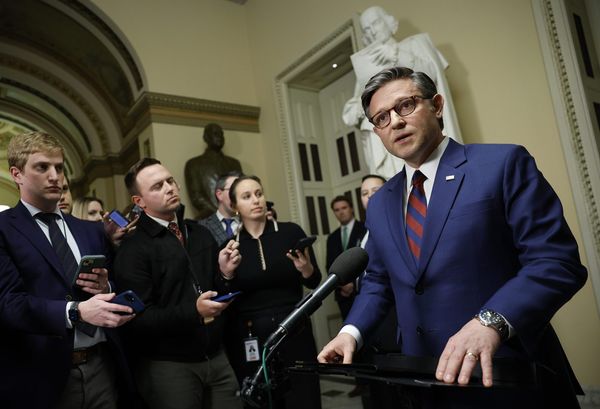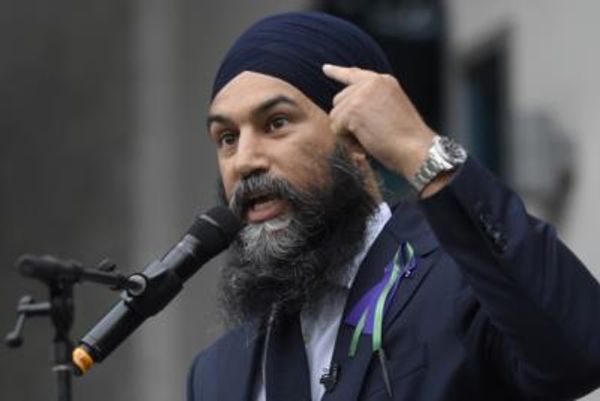
Our proposal is that we bring back the net overseas migration to a figure of about 160,000.
Peter Dutton, May 17, 2024
This opposition caper is pretty easy, Peter Dutton must have been thinking throughout the year. Just bag the government, disappear from the media cycle if things ever get hectic, and let the Reserve Bank’s smashing of the economy do the job of undermining government support.
At some point, however, he was going to have to produce at least some policy. Not too soon, and not too much — just enough to look like he has some sort of plan. It should have been doable. After all, he has the entirety of News Corp on his side to praise his policy offerings, and the fencesitters and bothsiders of the press gallery in other outlets won’t criticise Dutton without making sure they offer equal criticism of the government.
But that overlooks the fact that Dutton is, to use a term made famous by Paul Keating, a policy bum. There is nothing in his political history that indicates either ministerial competence or policy nous. He was an indifferent health minister who failed to push through a Medicare copayment. As immigration and then home affairs minister, he lost control of borders to organised crime and failed to fix the many basic problems of the Immigration Department. His shorter time at Defence was of a Marlesian quality — a blithe indifference to the department’s many failings, while shrilly yelling at China.
Dutton’s limited forays into policy as leader have been characterised by confusion. It’s still not clear exactly what the Coalition’s tax policy is, with the initial opposition confusion in the aftermath of Labor’s changes to the stage three tax cuts — remember those — lasting to this very day: when even your mates at News Corp say you’re “kicking the can down the road“, it’s not a good sign. It’s clear that the Nationals have driven the opposition’s shift toward embracing divestiture powers in competition policy, but the humiliation of Bridget McKenzie when she perfectly reasonably suggested those powers should be extended to Qantas reveals an innate ideological confusion borne of two parties with opposite ideas of the worth of corporate power.
When Dutton “unveiled” what looked like a detailed migration policy in his budget reply back in May, including a specific commitment to a net overseas migration target of 160,000, it was immediately undermined by shadow treasurer Angus Taylor having a completely different idea of what Dutton had just announced. What kind of show is Dutton running when his shadow treasurer, after the leader’s own budget reply, doesn’t know what the policy is?
Then there was Dutton railing against foreign students, but refusing to back a government bill to, erm, reduce foreign student numbers — a Trump tactic that only Crikey called out.
But the confusion has now gotten worse. While many of us have been talking about how Dutton is seeking to exploit migration — and Labor is failing to get it under control — in the lead-up to the election, the inherent problems of a low-migration policy have tripped up the opposition leader. Yesterday he abandoned that 160,000 target from back in May — leaving his friends at Sky to say he “repeatedly equivocated and refused to recommit to the target”. Ouch.
Remember, this is an area in which Dutton was minister for seven years. If he doesn’t know migration, who does? But now all we have is Dutton’s hatred of foreign students and hostility to migrants as his formal policy.
Dutton’s other signature policy, an unprecedented, fiscally devastating entry of the government into power generation, will receive some time in the spotlight this week with Dutton having promised for the umpteenth time he’ll release details of it. That the Coalition is busy trying to invent numbers for Labor’s policy to argue that the hundred-billion-plus cost of nuclear reactors is the cheap option suggests no amount of fake “independent modelling” or Panglossian assumptions have been able to get the costing down to anything reasonable.
In that context, it’s worth reading the CSIRO’s latest GenCost report, which sets out to address the complaints of nuclear power fans and the Coalition that the assumptions behind its 2023 demolition of the economic case for nuclear power (and, it shouldn’t be forgotten, Labor’s carbon capture and storage scam) were unfair.
The opposition complained that the lives of nuclear reactors are much longer than modelled. GenCost notes that nuclear power plants can indeed run for many decades, but they need refurbishment to do so, and renewables plants can run for similar lives at a much lower refurbishment cost.
The opposition complained the CSIRO should have used a US power capacity figure of 93%, not the global nuclear industry average of 80% or the Australian coal-fired power plant average of 59%. GenCost pointed out it uses the same capacity range for all power sources, and it’s not prudent financially to assume the best-case scenario.
The opposition complained that nuclear power plants could be up and running in 10-15 years and not 15 years as GenCost assumed. Gencost points out that nuclear construction times have now blown out by 2.2 years recently, and that the only countries building reactors quickly are non-democracies that don’t have to worry about public consultation.
But what about changing costs for different power sources? Well:
The capital costs of onshore wind generation technology increased by a further 8% in 2023-24 and another 2% in 2024-25 while large-scale solar PV has fallen by 8% in consecutive years. Large-scale battery costs improved the most in 2024-25 falling by 20% in 2024-25.
Even with some of the tweaks demanded by the Coalition, the latest GenCost report shows large-scale nuclear is significantly more expensive than coal, gas and solar or wind with firming capacity. The only things large-scale nuclear is cheaper than is carbon capture and storage, and small modular reactors — which are at least twice the cost of any other energy source and three times the cost of the cheaper ones.
Dutton might be better off abandoning any policy and simply going to the election with nothing more than incessant criticism of Labor. He’s a policy bum, and any time he opens his mouth on his own policies, he confirms it.
Have something to say about this article? Write to us at letters@crikey.com.au. Please include your full name to be considered for publication in Crikey’s Your Say. We reserve the right to edit for length and clarity.







